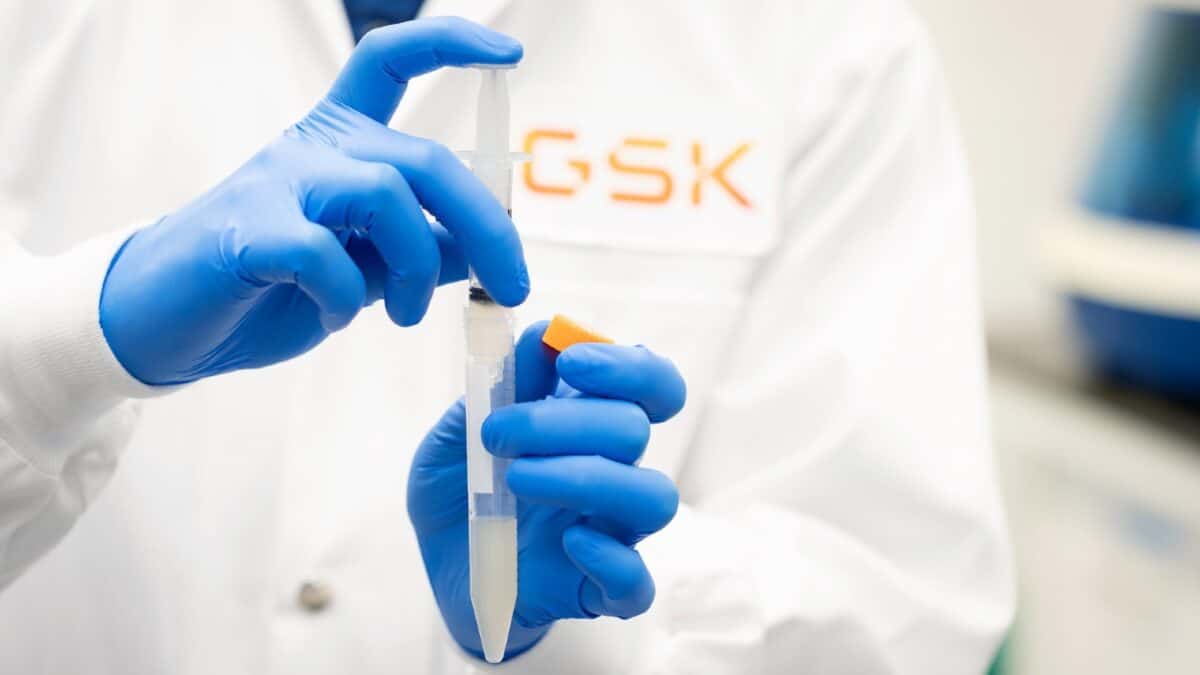GSK’s (LSE: GSK) share price is around an 18-month high. But just because a stock has risen a lot does not automatically mean that it is overvalued. It could simply be that the company is worth more than it was before.
In fact, it could well be worth even more than the current share price reflects.
Undervalued compared to its peers
On the key price-to-earnings (P/E) ratio measurement, GSK currently trades at just 13.8 against a peer group average of 26.7.
This group comprises Bristol-Meyers Squibb at 12.6, Merck KGaA at 23.4, AstraZeneca at 33.1, and Hikma Pharmaceuticals at 37.9.
A discounted cash flow analysis shows GSK shares to be around 59% undervalued at their present price of £16.66. Therefore, a fair value would be around £40.63.
This does not mean the shares will reach that price, of course. But it does underline to me that they look very good value.
Strong core business
GSK’s full-year (FY) 2023 results showed revenue at £30.3bn, up 3.4% from FY2022. Net income increased 11% over the same period – to £4.93bn. And earnings per share grew 9.9% to £1.22, from £1.11 in 2022.
GSK expects increases in 2024 in turnover (by 5%-7%), adjusted operating profit (by 7%-10%), and adjusted earnings per share (by 6%-9%).
For 2021-2026, it now expects a 7% compound annual growth increase for sales (against the previous 5%). Adjusted operating profit is forecast to grow more than 11% (versus 10% before) on the same basis.
By 2031, GSK now expects to achieve sales of more than £38bn. This is an increase of £5bn over the estimate given in 2021.
Major new products’ potential
There is always a risk in pharmaceutical stocks that one of their major product lines may fail. Given how much time and money goes into developing them, this can be a major setback.
Another risk in such stocks is of legal action arising from negative side effects on a core product.
Indeed, GSK has been on the wrong end of litigation surrounding its Zantac product. However, on 23 June last year, it announced that the lawsuits had been settled.
GSK has also been criticised in the past for having a relatively low new product pipeline. For example, it currently has 71 vaccines and specialty medicines now in clinical development. By comparison, its main UK rival AstraZeneca has 167.
However, 5 February this year saw GSK announce very positive results for its multiple myeloma drug, Blenrep. Trials showed a 59% reduction in the risk of disease progression or death from plasma cell cancer with the use of a Blenrep combination therapy.
On 6 February, it announced that the US Food and Drug Administration has fast-tracked a review for its respiratory syncytial virus vaccine Arexvy.
If approved, this would be the first vaccine available to help protect those aged 50-59 against the virus.
On 13 February, Citigroup raised GSK stock to a ‘Buy’ recommendation for the first time in seven years.
I am happy with my existing holding in GSK, which I was fortunate enough to buy at a much lower price. If I did not have this, I would buy the stock for its growth potential and because it still looks cheap, in my view.








